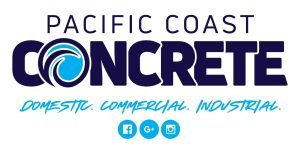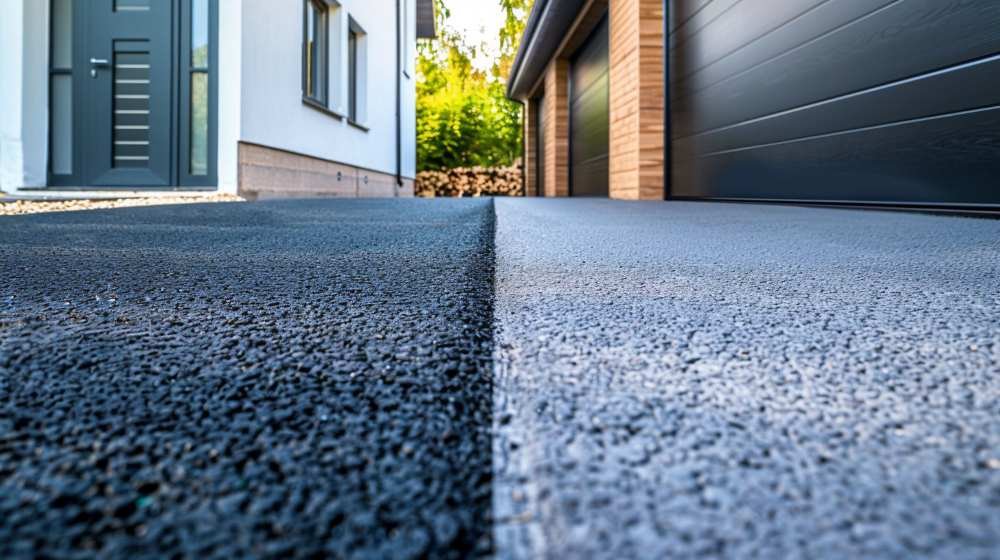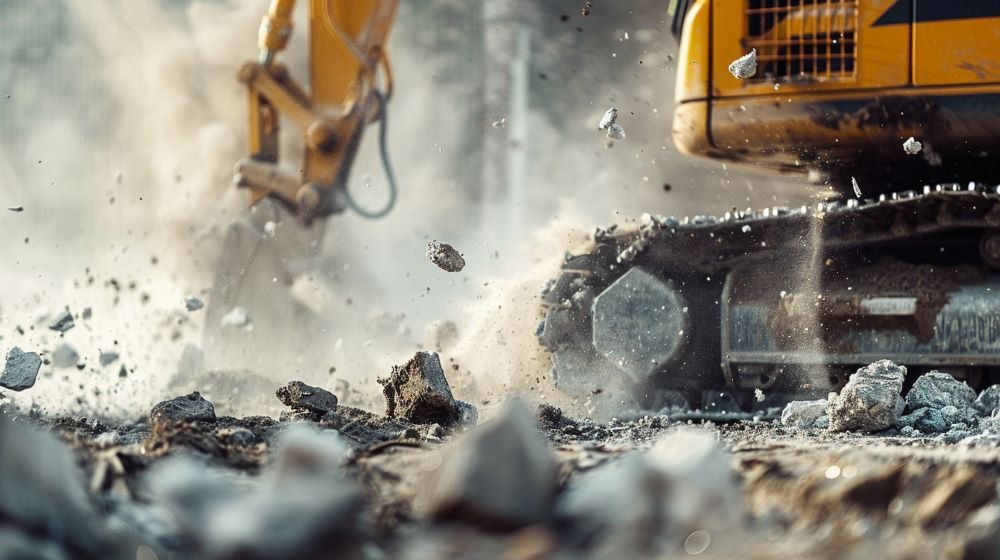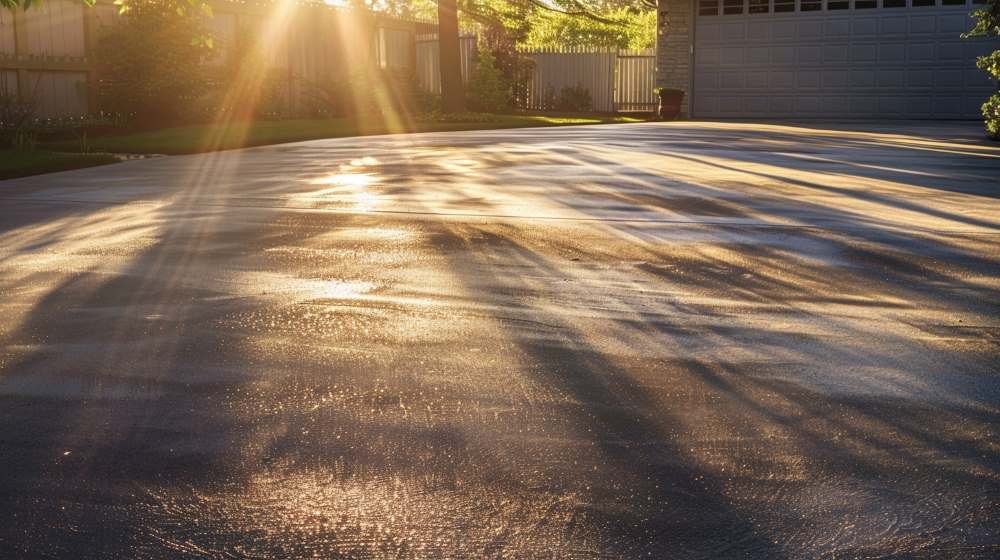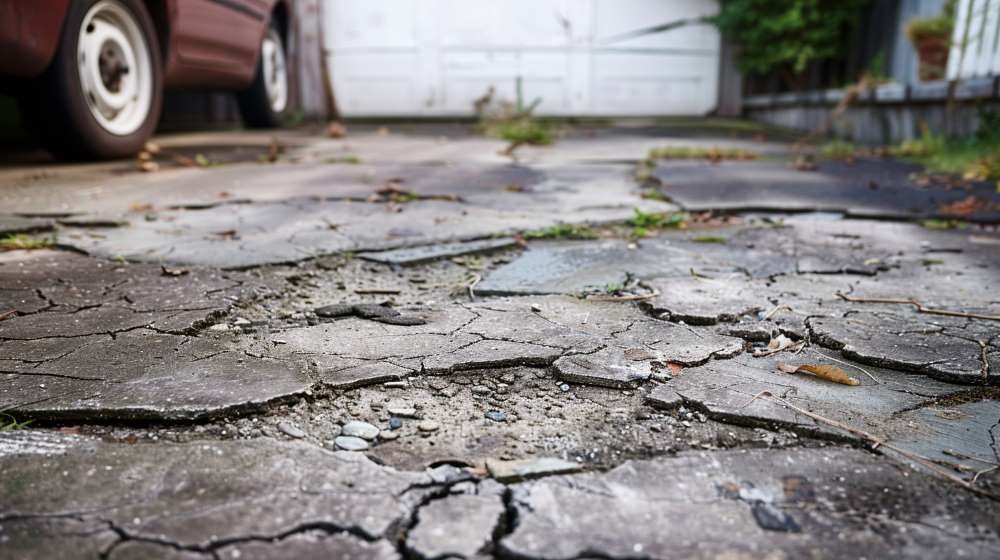Have you ever wondered whether asphalt driveways are cheaper than concrete?
Picture this: you’re a homeowner looking to replace your worn-out, cracked driveway. You’ve heard that asphalt is a more cost-effective option, but is it really?
In this discussion, we will explore the initial installation costs, maintenance and repair expenses, and long-term durability of both asphalt and concrete driveways. By the end, you’ll have a clearer understanding of the overall cost comparison between the two options.
So, let’s dive in and find out which one is the better choice for your wallet.
Initial Installation Costs
When considering the initial installation costs of asphalt and concrete driveways, it’s important to weigh the factors that can impact your budget.
Asphalt driveways generally have lower upfront costs compared to concrete driveways. The cost of asphalt can range from $40 to $60 per square metre, while concrete can be around $60 to $150 per square metre. The main reason for the price difference is the materials used. Asphalt is made from a mixture of sand, gravel, and asphalt cement, which is a petroleum-based product.
Concrete, on the other hand, is made from a mixture of cement, sand, and crushed stone. The availability and accessibility of these materials in your area can also affect the overall cost. Additionally, asphalt driveways can be installed more quickly than concrete driveways, which can save on labour costs.
However, it’s important to consider the long-term maintenance and repair expenses, which will be discussed in the next subtopic, as these can impact the overall cost of your driveway over time.
Maintenance and Repair Expenses
To determine the overall cost of your driveway over time, it’s important to consider the maintenance and repair expenses associated with both asphalt and concrete driveways. Here are three key points to consider:
- Asphalt driveways generally require more frequent maintenance compared to concrete driveways. Over time, the surface of an asphalt driveway can develop cracks and potholes due to wear and tear, exposure to the elements, and heavy vehicle traffic. Regular sealing and patching of these cracks and potholes are necessary to prevent further damage and extend the lifespan of the driveway.
- Concrete driveways, on the other hand, are more durable and require less maintenance. While they can also develop cracks, they’re less prone to damage from heavy vehicles and weather conditions. However, if cracks do appear, they should be repaired promptly to prevent them from spreading and causing more significant damage.
- When it comes to repair expenses, asphalt driveways tend to be more cost-effective. Patching and sealing cracks in asphalt driveways can be done relatively easily and at a lower cost compared to repairing concrete driveways. Concrete repairs, especially for larger cracks or damaged sections, can be more labor-intensive and costly.
Considering these maintenance and repair expenses will help you make an informed decision about which type of driveway is more suitable for your needs and budget.
Long-Term Durability and Lifespan
If you want a driveway that will last for many years with minimal maintenance, consider the long-term durability and lifespan of asphalt and concrete driveways. Both materials have their own advantages and drawbacks to consider.
Asphalt driveways are known for their flexibility, which allows them to withstand freeze-thaw cycles and minor ground movements. This flexibility helps prevent cracks and damage over time. However, asphalt does require periodic maintenance, such as sealcoating and filling in cracks, to ensure its longevity. On average, an asphalt driveway can last around 20 to 30 years with proper care.
On the other hand, concrete driveways are known for their strength and durability. They can withstand heavy traffic and are less prone to damage from chemicals and oil spills. While concrete driveways don’t require as much maintenance as asphalt, they may develop cracks over time due to settling or ground movement. With proper installation and maintenance, a concrete driveway can last around 30 to 40 years or even more.
Overall Cost Comparison – Asphalt vs Concrete Driveways
The cost of installing and maintaining asphalt and concrete driveways differs significantly. When comparing the overall cost of these two types of driveways, there are several factors to consider.
Here is a breakdown of the cost comparison:
- Initial Installation Cost: Asphalt driveways tend to have a lower initial installation cost compared to concrete driveways. This is because asphalt materials are generally less expensive than concrete materials. Additionally, asphalt driveways can be installed more quickly, which can further reduce labor costs.
- Long-Term Maintenance Cost: While asphalt driveways may have a lower initial cost, they typically require more frequent maintenance and repairs. Over time, the cost of sealing cracks and pothole repairs can add up. On the other hand, concrete driveways are generally more durable and require less maintenance, resulting in lower long-term maintenance costs.
- Lifespan and Resurfacing: Concrete driveways have a longer lifespan compared to asphalt driveways. While asphalt driveways may last around 15-20 years with proper maintenance, concrete driveways can last up to 30-40 years. Additionally, concrete driveways can be resurfaced to prolong their lifespan, whereas resurfacing options for asphalt driveways are more limited.
Conclusion
Overall, asphalt driveways are generally cheaper than concrete driveways. According to a recent study, the initial installation cost of an asphalt driveway is about 30-40% less than that of a concrete driveway.
However, it’s important to consider long-term durability and maintenance expenses. While asphalt driveways require more frequent maintenance and repairs, they still tend to be more cost-effective in the long run.
So, if you’re looking for a more affordable option without compromising quality, asphalt is the way to go.
